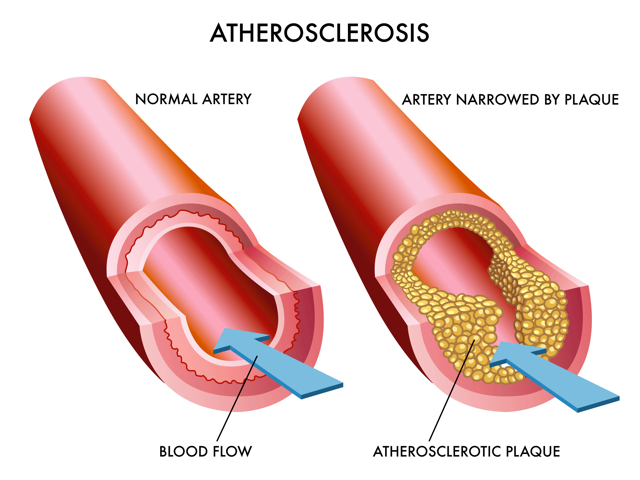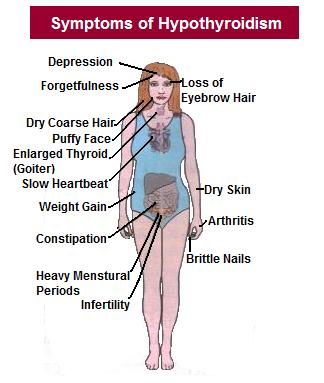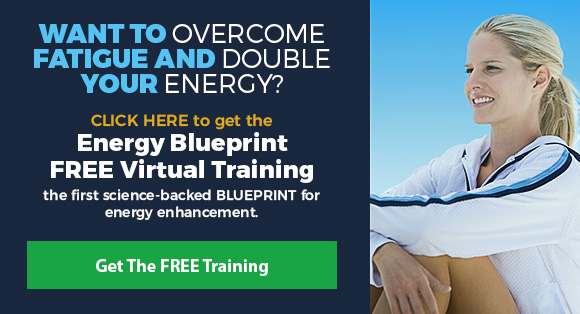27 Feb High Cholesterol May Not Matter
Worried about your High Cholesterol? Make sure to address the lifestyle and nutrition component.
Maybe you have had high cholesterol for your whole life. No matter how much you “watch what you eat”, workout, and be healthy, that dang cholesterol number just won’t budge.
Every time you have a physical, blood draw, or a doctors visit, you sit there and wait for it. “We need to talk about your cholesterol…” They go over the numbers and point out the dangers of high cholesterol.
Their answer usually involves statins, a “no cholesterol diet” or something else you have already tried. You tweak your diet, you tweak your workouts in an attempt to raise that HDL level, but nothing budges.
You decide to choose the statins and ignore the side effects (the sore muscles, aches, pains, diarrhea, trouble sleeping, etc.) and WHY? Because your doctor said to get those numbers lowered.
BUT, is it really necessary?
Can you relate to this?
If you can, I ask you to consider a paradigm shift. That MAYBE just MAYBE Your blood cholesterol numbers are a symptom of dysfunction—not the dysfunction itself.
Curious? Read on!
The Cholesterol Paradigm Shift
In the paragraphs below I am going to share a substantial paradigm shift with you. This information is written by my good friend, and best-selling author, Ari Whi
Ari is the best selling author of Forever Fat Loss and the creator of cutting-edge program The Energy Blueprint. (By the way, he’s got an incredible FREE training on how to increase your energy levels. It’s a MUST WATCH for anyone who cares about being healthy, increase their energy or wants to lose fat. You can sign up for that 100% FREE Virtual Training HERE.)
*NOTE: Before reading on it is important to note that this article does not claim to be a treatment or cure for any disease. If you have a serious medical condition, see your doctor and take appropriate action.
Decades old Science – High Cholesterol and Heart Disease
In Ari’s words:
For decades now, we have been taught to believe that higher levels of cholesterol will cause heart disease (and many other health problems). After our blood tests, our doctors sit us down to let us know “you’re cholesterol numbers are a little high—we need to do something about this. And by do something about this, I mean we need to start you on statin drugs.”
This is the simple conversation that takes place between millions of people and their doctors, every single day. I usually get at least one call every week or two, from a client or friend, where they tell me “I have high cholesterol. I don’t understand—I never had high cholesterol before. My doctor wants me to go on statin drugs. What do you think, Ari?”
Ultimately, this is a medical decision you need to make with your doctor. But hopefully you also believe in educating yourself thoroughly on all health issues so you can make educated decisions.
With that said, let’s talk about cholesterol…
“There is no life on Earth that can live without cholesterol…”
Well, let me offer a quote from anti-aging expert Ron Rosedale, M.D. that offers a clue as to what can explain those observations:
“First and foremost, cholesterol is a vital component of every cell membrane on Earth. In other words, there is no life on Earth that can live without cholesterol. That will automatically tell you that, in and of itself, it cannot be evil. In fact, it is one of our best friends. We would not be here without it. No wonder lowering cholesterol too much increases one’s risk of dying. Cholesterol is also a precursor to all of the steroid hormones. You cannot make estrogen, testosterone, cortisone, and a host of other vital hormones without cholesterol.”[1]
You’ve probably heard of so-called good and bad cholesterol—HDL and LDL, respectively. But do you know what the actual function of HDL is? Well, it’s entire role is basically to take cholesterol from your body’s tissues and arteries, and bring it back to your liver. Why? So it can be eliminated from your body, right? Your body is trying to get rid of all that poisonous cholesterol, right? WRONG! To eliminate it, it would need to take it to the kidneys or intestines. Instead it takes it to the liver?
Why? The HDL takes it back to the liver so the liver can recycle it and put it back into the form of cholesterol that can be delivered to cells for their health. As Dr. Rosedale explains. “Your body is trying to make and conserve the cholesterol for the precise reason that it is so important, indeed vital, for health.”[2]
Cholesterol is in fact regulated by the body in exactly the same way that it regulates your blood oxygen, blood sugar, blood pressure and countless other factors that need to be kept in a tight range.
This is why numerous studies have refuted the notion that eating cholesterol-containing foods do not actually increase blood cholesterol levels significantly, and why they routinely find that consumption of these foods do not increase heart disease. For example:
· A survey of South Carolina adults found no correlation of blood cholesterol levels with cholesterol-containing foods, such as use of red meat, animal fats, fried foods, butter, eggs, whole milk, bacon, sausage and cheese.[3]
· Another study showed that men eating butter (the fat we were all told causes heart disease) ran half the risk of developing heart disease as those using margarine (the fat we were all told prevents heart disease).[4]
The Hidden Connection Between Cholesterol and Inflammation
Inflammation has become all the rage in the medical community in recent years, and it is now scientifically linked to countless diseases, from depression, to Alzheimer’s, to many cancers, to heart disease. Heart disease is of particular interest here since that just so happens to be the disease that people blame on cholesterol.
Now, consider what inflammation’s role in your body actually is. Generally speaking, its role is to respond to potential invaders and to cell damage (like a cut for example). The body responds by:
· Constricting blood vessels to prevent you from bleeding to death
· Making your blood thicker so it can clot
· Immune system activation to fight off invaders
· To repair the damage, cells are asked to multiply and/or repair themselves
 Eventually the cut fills in and you get a scar. Note that if this happens internally in the blood vessels, we call it a “plaque.” Now, this plaque, and the increased blood thickness and blood vessel constriction (higher blood pressure) that occurs from the inflammatory response (which in turn, remember, is initiated by cell damage), can indeed increase your risk of high blood pressure and heart attacks.
Eventually the cut fills in and you get a scar. Note that if this happens internally in the blood vessels, we call it a “plaque.” Now, this plaque, and the increased blood thickness and blood vessel constriction (higher blood pressure) that occurs from the inflammatory response (which in turn, remember, is initiated by cell damage), can indeed increase your risk of high blood pressure and heart attacks.
At this point, cholesterol is elevated in the blood to help repair the damaged cells at the site of the injury. Remember, your cells need cholesterol. So if you damaged your cells, your body has to increase cholesterol levels in order to repair the cells—this is vital to normal cell health and function.
As Rosedale explains:
“If excessive damage is occurring such that it is necessary to distribute extra cholesterol through the bloodstream, it would not seem very wise to merely lower the cholesterol and forget about why it is there in the first place. It would seem much smarter to reduce the extra need for the cholesterol — the excessive damage that is occurring, the reason for the chronic inflammation.”2
Zetia and Vytorin: No Medical Benefits
A few years ago, a drug called Zetia came out, which works by inhibiting absorption of cholesterol from your intestines, and it, along with Vytorin (which is a combination of Zetia and Zocor, a statin drug) quickly took over the market place—the drugs took hold of nearly 20 percent of the U.S. market for cholesterol-lowering drugs. And after close to 1 million prescriptions for the drugs were being written each week in the United States, bringing in close to $4 billion in 2007, a study came out that found that these drugs “have no medical benefit.”
As in, they do not work.
These drugs do indeed lower cholesterol levels—quite effectively actually—but the problem was that despite lowering cholesterol levels, they didn’t actually work to slow down plaque progression or decrease rates of heart attacks or strokes.
In fact, they actually found that in those people whose cholesterol was lowered very well (into the “healthy range”), their plaques grew nearly twice as fast![7]
Some cholesterol-lowering drugs are associated with a whole range of side effects[8] [9] [10] [11]:
· Muscle pain and weakness, and muscle cell death—this is the most common side effect of statin drugs
· Nerve damage
· Failing memory
· Depression and irritablity
· Cognitive impairment
· A potential increased risk of cancer
· Liver problems, including a potential increase in liver enzymes (so people taking statins must be regularly monitored for normal liver function)
Other cholesterol-lowering drugs besides statins also have side effects, most notably muscle pain and weakness.
Now there are certainly studies that indicate benefits from cholesterol lowering drugs, but this is not a simple case of lowering cholesterol always being better and reliably enhancing health. So be aware of which specific drugs you’re taking and make sure that the research on that drug shows strong, proven benefits along with minimal risks of side effects.
How To Lower Inflammation, Prevent Cell Damage, and Prevent Heart Disease
 The most important thing to consider here is the simple fact that humans eating their traditional whole-food diets have little to no heart disease. [12] (Note: They also don’t have significant obesity, and nearly every other degenerative disease in the modern Western world).
The most important thing to consider here is the simple fact that humans eating their traditional whole-food diets have little to no heart disease. [12] (Note: They also don’t have significant obesity, and nearly every other degenerative disease in the modern Western world).
Heart disease—like obesity, type II diabetes, and a host of other lifestyle disease—is a modern epidemic, and is generally unique to modernized and Westernized populations eating a Western processed food diet. As soon as we modernize a traditional culture and introduce processed foods to them, rates of heart disease, obesity, and diabetes begin to skyrocket. It’s not a coincidence. (Note that it is not necessary to eat a low-carb or low-fat diet, but it is necessary to eat a whole-foods diet).
The single biggest contributor to heart disease is eating a processed food diet, which promotes cell damage and dysfunction on multiple levels—from driving neurological food addiction and calorie overconsumption (which itself promotes a toxic state in the body), to causing micronutrient deficiency, among other reasons.
Excess consumption of omega 6 fats from vegetable oils can contribute to excess inflammation.
 Trans fats—hydrogenated oils—are another significant contributor to cell damage and heart disease.
Trans fats—hydrogenated oils—are another significant contributor to cell damage and heart disease.
More commonly heard factors as well, such as smoking, being sedentary, and alcoholism all promote cell damage.
Hypothyroidism and metabolism dysfunction are another huge contributor to heart disease (and many other degenerative diseases) that is frequently overlooked. [13]
8 Practical steps to take
1) Make the commitment to eating only whole foods, and remove all processed foods completely from your life. This step alone will likely completely prevent you from ever getting heart disease. You should eat things that have one ingredient and do not have an ingredient list (i.e. “eggs” “salmon” “kale” “potato” “orange” “carrot” etc).
2) Cook your own food at home from scratch, rather than eating out, where they typically use low quality ingredients and cook using heart-toxic oils.
3) Minimize consumption of vegetable oils and anything with trans fats. Do not eat them, do not cook with them, and do not buy pre-made dressings and sauces which are almost always packed with vegetable oils.
5) If you consume animal foods, eat naturally raised animals, not conventionally-raised animals. You want grass-fed, free-range, and wild-caught only.
6) If you drink or smoke, obviously it goes without saying that these things are not good, as you’ve no doubt heard 1,000 times before.
 7) Exercise daily. Every day, you should go for 1-2 walks. That’s the foundation that you should do everyday no matter what. If you want to step things up from there, consider adding in some high-intensity exercise bursts (like sprints or weight lifting) a few times a week. Also note that even when broken up by exercise, periods of prolonged sitting are an independent risk factor for heart disease.
7) Exercise daily. Every day, you should go for 1-2 walks. That’s the foundation that you should do everyday no matter what. If you want to step things up from there, consider adding in some high-intensity exercise bursts (like sprints or weight lifting) a few times a week. Also note that even when broken up by exercise, periods of prolonged sitting are an independent risk factor for heart disease.
8) If you have hypothyroidism or a slow metabolism, in addition to working with your doctor, take steps to address the nutrition and lifestyle componenets of these conditions. Having optimal thyroid and metabolic function can prevent a huge range of problems, from fat gain, to diabetes, to heart disease, to depression to countless others. (This is my area of specialty, so don’t hesitate to contact me if you need help rejuvenating your thyroid and metabolism).
Ultimately, you need to make informed medical decisions with doctor’s you trust, and you may still decide to go on statins. But I hope that whether or not you decide to do so, you will take steps to address the nutrition and lifestyle components of the underlying issues.
Don’t fall into the trap of chasing cholesterol numbers solely through medication. Instead, correct the problem at the source by avoiding sources of cell damage, providing the optimal hormonal environment to your cells, and giving your cells the nutrients they need to function perfectly.
_________________
Are you ready to take your body and energy to the next level?
Ari has put together what may just be the most advanced and cutting-edge, science-packed health program in the world. It’s called The Energy Blueprint and people are absolutely raving about it. He offers an amazing “Overcome Fatigue and Double Your Energy” FREE Virtual Training course that is a MUST WATCH for anyone who cares about their health and wants more energy. You can sign up for that HERE.
___________________________
If you’re looking to improve your body and your energy levels, make sure to sign up for Ari’s incredible FREE “Double Your Energy” Video Training course HERE.
References:
[1] http://articles.mercola.com/sites/articles/archive/2010/08/10/making-sense-of-your-cholesterol-numbers.aspx
[2] http://articles.mercola.com/sites/articles/archive/2010/08/10/making-sense-of-your-cholesterol-numbers.aspx
[3] Lackland, D T, et al, J Nutr, Nov 1990, 120:11S:1433-1436
[4] Nutr Week, Mar 22, 1991, 21:12:2-3
[5]Fallon, S. and Mary Enig. “Dangers of Statin Drugs: What You Haven’t Been Told About Popular Cholesterol-Lowering Medicines,” The Weston A. Price Foun
[6]http://www.businessweek.com/stories/2008-01-16/do-cholesterol-drugs-do-any-good
[7]http://www.nytimes.com/2008/01/14/business/14cnd-drug.html?ei=5088&en=181407fac186f36a&ex=1357966800&adxnnl=1&partner=rssnyt&emc=rss&adxnnlx=1223136007-UfzhwBHrw9aUk3qmQSdoRA&_r=0
[8]Mercola.com Sudden Memory Loss Linked to Cholesterol Drugs
[9]Nature Medicine September, 2000;6:965-966, 1004-1010.
[10]Nature Medicine, December, 2000; 6: 1311-1312, 1399-1402
[11]Edwards, I. Ralph; Star, Kristina; Kiuru, Anne, “Statins, Neuromuscular Degenerative Disease and an Amyotrophic Lateral Sclerosis-Like Syndrome,”
[12] http://wholehealthsource.blogspot.com/2011/08/carbohydrate-hypothesis-of-obesity.html
[13] http://circ.ahajournals.org/content/116/15/1725.full
[1] http://articles.mercola.com/sites/articles/archive/2010/08/10/making-sense-of-your-cholesterol-numbers.aspx
[1] http://articles.mercola.com/sites/articles/archive/2010/08/10/making-sense-of-your-cholesterol-numbers.aspx
[1] Lackland, D T, et al, J Nutr, Nov 1990, 120:11S:1433-1436
[1] Nutr Week, Mar 22, 1991, 21:12:2-3
[1]Fallon, S. and Mary Enig. “Dangers of Statin Drugs: What You Haven’t Been Told About Popular Cholesterol-Lowering Medicines,” The Weston A. Price Foun
[1]http://www.businessweek.com/stories/2008-01-16/do-cholesterol-drugs-do-any-good
[1]http://www.nytimes.com/2008/01/14/business/14cnd-drug.html?ei=5088&en=181407fac186f36a&ex=1357966800&adxnnl=1&partner=rssnyt&emc=rss&adxnnlx=1223136007-UfzhwBHrw9aUk3qmQSdoRA&_r=0
[1]Mercola.com Sudden Memory Loss Linked to Cholesterol Drugs
[1]Nature Medicine September, 2000;6:965-966, 1004-1010.
[1]Nature Medicine, December, 2000; 6: 1311-1312, 1399-1402
[1]Edwards, I. Ralph; Star, Kristina; Kiuru, Anne, “Statins, Neuromuscular Degenerative Disease and an Amyotrophic Lateral Sclerosis-Like Syndrome,”
[1] http://wholehealthsource.blogspot.com/2011/08/carbohydrate-hypothesis-of-obesity.html
[1] http://circ.ahajournals.org/content/116/15/1725.full

